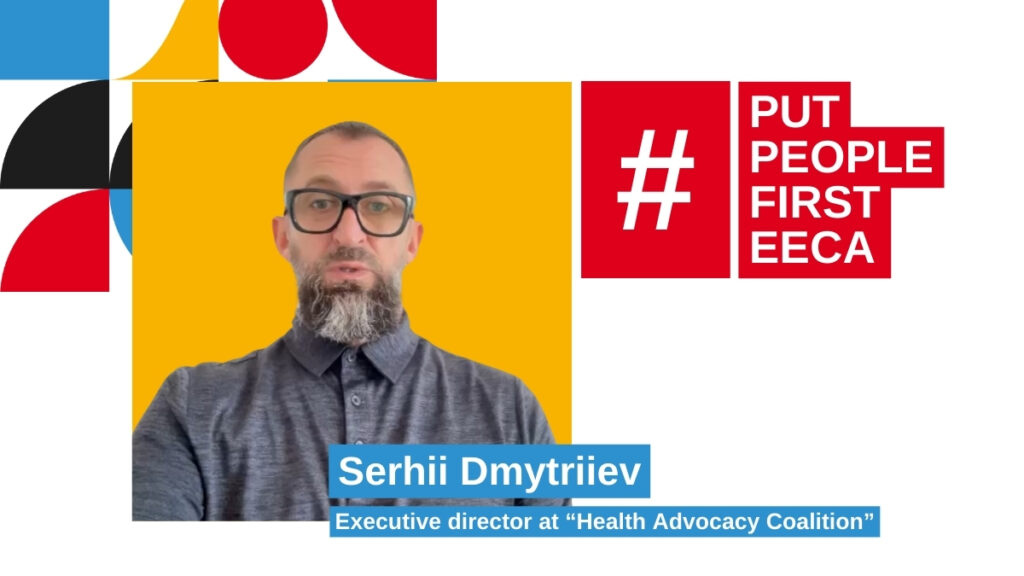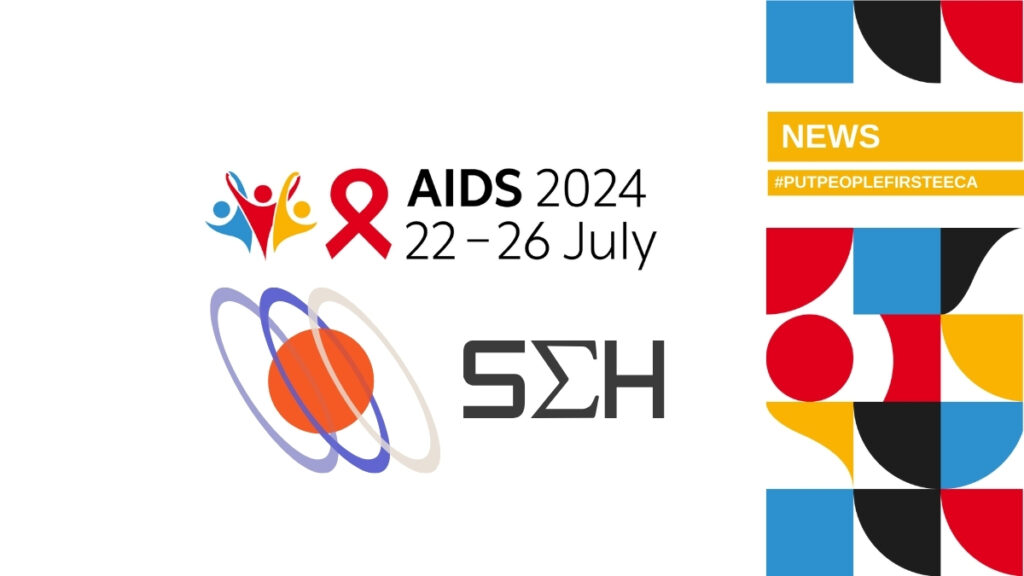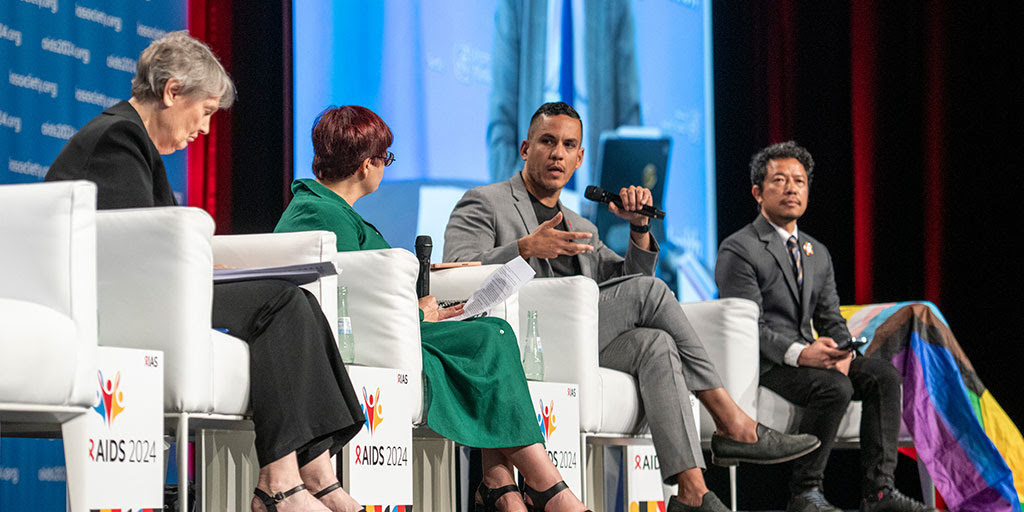Good morning! There is a full day of sessions and activities ahead, and the Daily Digest guides you through it. Make the most of the last day of the Global Village and poster exhibition!
Coming up today
Convert to your time zone through the AIDS 2024 programme.
07:00 CEST
Satellite sessions get underway.
08:30 CEST
The plenary, “HIV prevention strategies”, updates on where we are with HIV vaccines and where we are going, PrEP implementation in low- and middle-income countries, and community-based research for advancing PrEP access for key populations. It concludes with IAS Executive Director Birgit Poniatowski awarding the new round of CIPHER and IPHASA grants.
10:00 CEST
Two workshops take place. Find out about strategies used in Ghana for access of vulnerable adolescents and young people to sexual and reproductive health and rights services. Or join the AIDS 2024 Paediatrics Clinical Cases Olympics for clinicians working with children living with HIV in low-resource settings.
10:30 CEST
WHO has recommended long-acting injectable cabotegravir (CAB) as PrEP since 2022. But there is a lack of data about whether CAB is safe for pregnant and lactating people; a symposium explores how to change this. The symposium, “The different flavours of gene therapy for HIV cure”, summarizes advances and challenges in gene editing tools for curing HIV.
The symposium, “Fake news, misinformation and the HIV response: Learnings from COVID-19”, provides insights into the history of scientific misinformation, what interventions work, the challenges of social media, and how misinformation impacted COVID-19 vaccine roll out.
Also consider:
- The symposium, “Beyond silence: Integrating sex into HIV and STI dialogues”, highlights the global landscape of increasingly conservative views on sex and sexuality and the criminalization of sex.
- Oral abstract sessions give an update on preventing vertical transmission and highlight community-led monitoring. “Young people age too!” includes an abstract on a randomized placebo-controlled trial of high-dose vitamin D and low-dose calcium supplementation to improve bone density in adolescents with perinatally acquired HIV in southern Africa.
12:00 CEST
Satellite sessions take place. These include “How Treatment Selection can support Long-Term Success to manage HIV”, organized by Gilead.
Workshops focus on inclusive HIV prevention support during natural disasters and AIDS advocacy agendas for current and emerging contexts.

13:30 CEST
The special session, “Take responsibility! Leadership towards ending AIDS”, explores what it takes to focus leadership on a resilient long-term response. Please note: the session has been moved from C1 to Room 1.
14:30 CEST
Workshops focus on Black women living and ageing with HIV and empowering participants to conceptualize and measure chemsex in diverse settings.
15:00 CEST
The effect of climate change on HIV vulnerability and general health on the African continent is under the spotlight in the oral abstract session, “Climates’ double burden: Tackling HIV most-affected regions”. The symposium, “Resilience rising: Understanding the impact of emergencies on communities”, focuses on the impact of pandemics, war, the climate crisis and other cataclysmic events on the health of vulnerable and marginalized communities.
Also at this time:
- “ART nouveau” includes week-48 outcomes from the multinational IMPAACT 2017 study on long-acting cabotegravir plus rilpivirine in virologically suppressed adolescents with HIV-1 receiving an all-injectable regimen every eight weeks.
- “Cracking the code of the tissue reservoir” includes a look at depletion and dysfunction of tissue-resident memory-like CD4+ T cells in the small intestine coinciding with intestinal epithelial cell hyperproliferation in people living with HIV.
- The symposium, “Simplifying PrEP: Is monitoring needed?”, considers the feasibility of people receiving PrEP to take responsibility for their own monitoring and/or testing.
- Promoting access to HIV services among men who have sex with men in the wake of the anti-LGBTQ+ wave in Ghana is among abstracts presented in a session on criminalized populations and addressing human rights barriers.
- “Integrating social enterprise for sustainability of key population programmes” includes discussion on whether key populations are part of country HIV response roadmaps.
16:30 CEST
Join a panel of public health journalists from leading media outlets at “Putting people first: How to translate science and policy to the world”. They discuss the media’s successes and shortcomings in translating issues and equipping audiences with the knowledge required to choose.
AIDS 2024 will be a critical opportunity to take stock of progress in the HIV response towards meeting the 95-95-95 targets, with some countries possibly getting there before 2025; a symposium examines the experiences of countries, cities and programmes in achieving these results.
Also consider:
- Symposia present out-of-the-box thinking on PrEP and STI care applied to real-world settings and look at progress in approaches to chronic viral infections that disproportionately impact people living with HIV.
- Oral abstract sessions explore transformative leadership and approaches for people living with HIV and criminalized populations and present the case for improving access to mental health services for a range of populations.
18:00 CEST
Satellite sessions take place.
Code of conduct
The IAS is dedicated to fostering a welcoming environment and encouraging debate and dialogue among all conference participants. The IAS upholds freedom of expression as a fundamental principle in our efforts to end HIV as a threat to public health and individual well-being and promote inclusive participation in our conferences.
Read the AIDS 2024 code of conduct.



